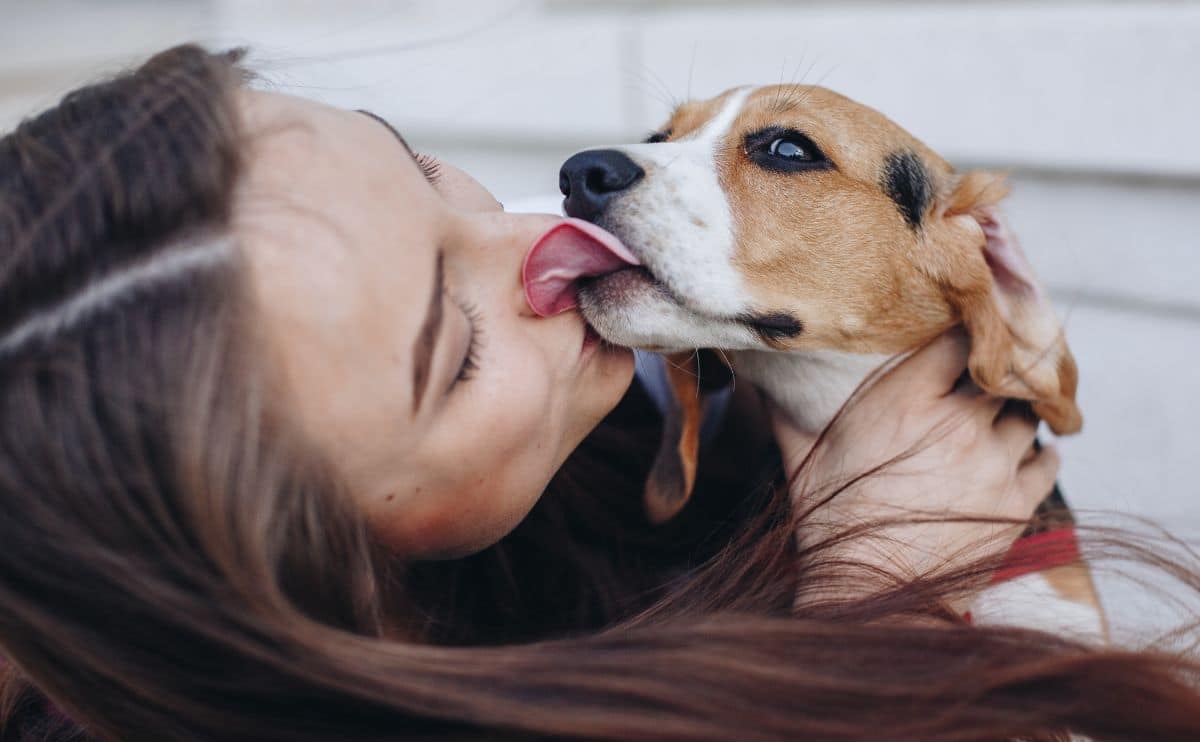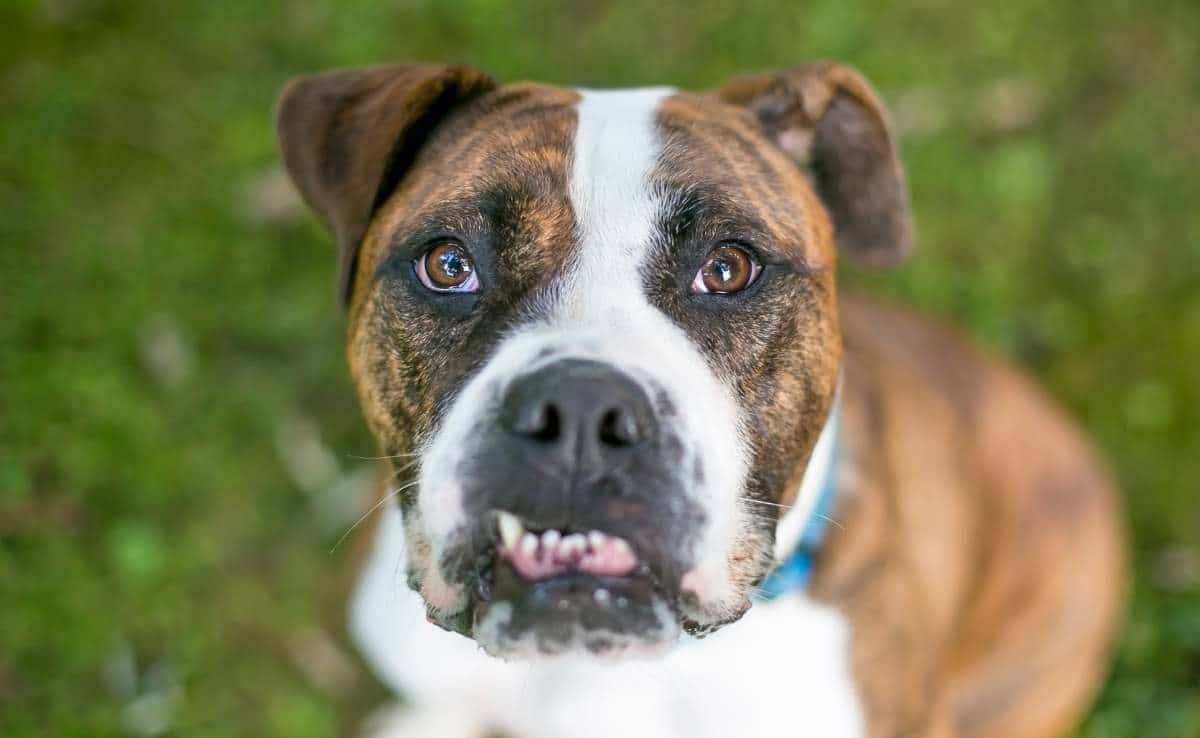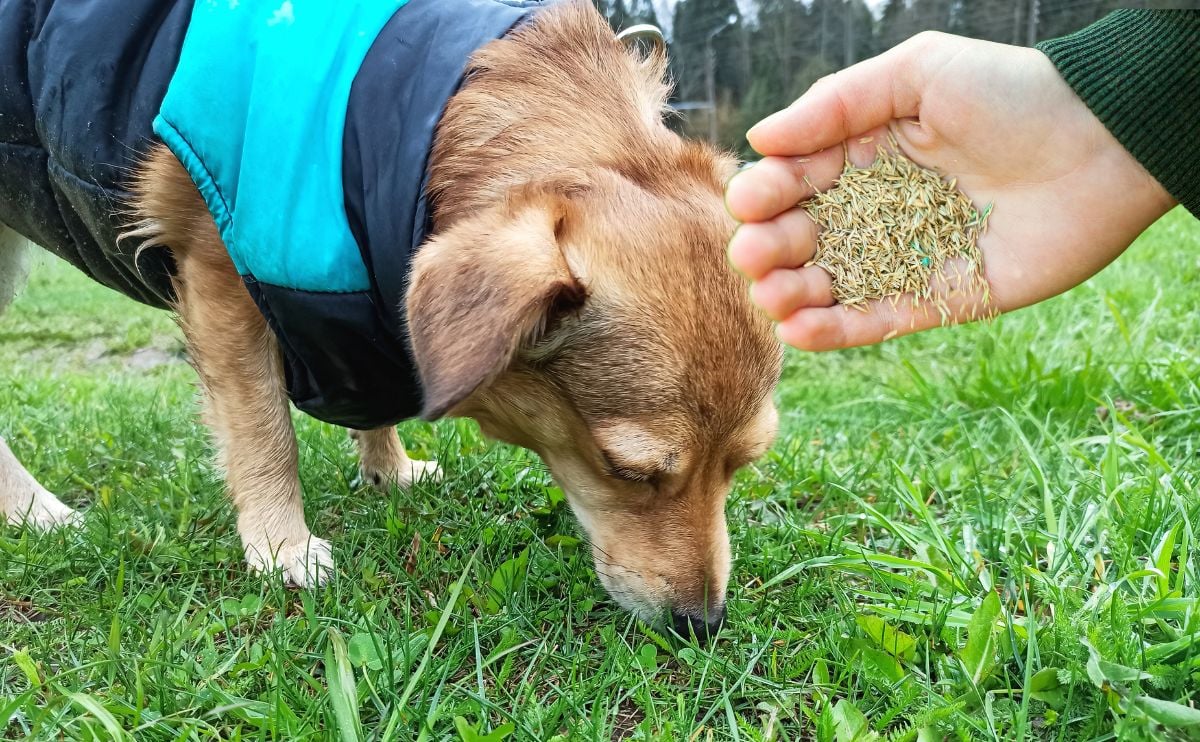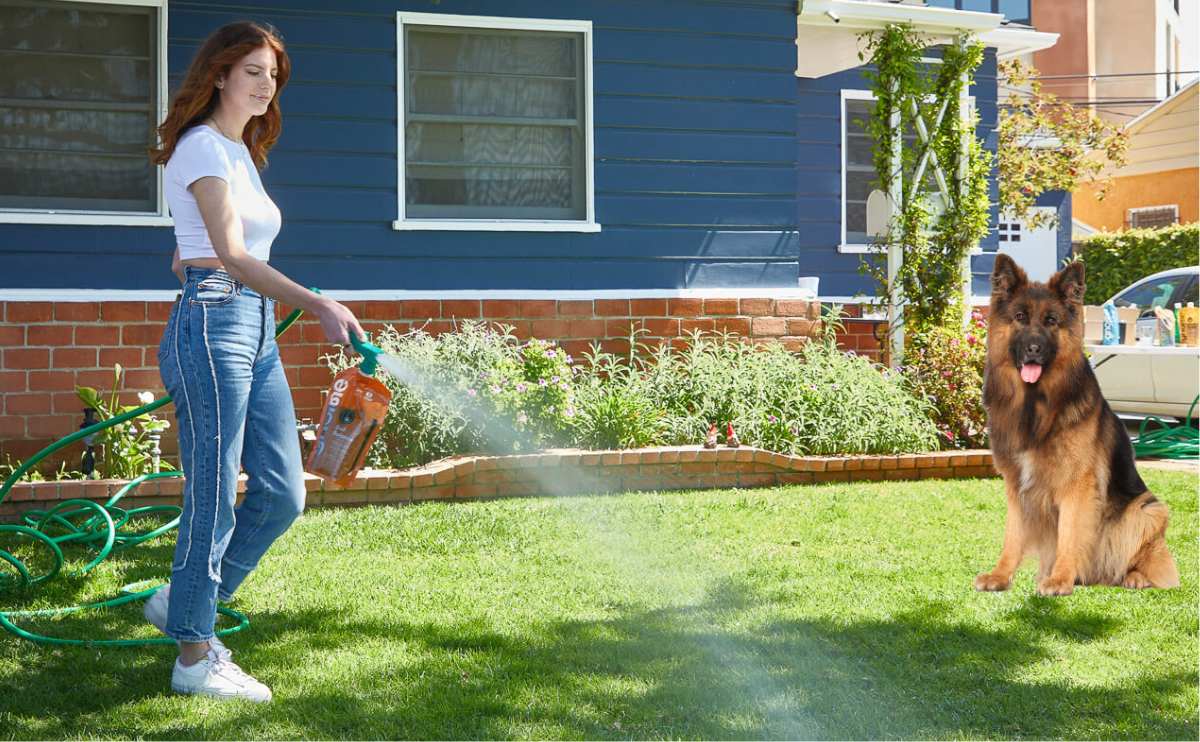When you purchase through links on our site, we may earn a commission. Here’s how it works.

When you get home, does your dog greet you with kisses and licks? You’re not alone. My dog loves jumping up and down and is determined to kiss my face. She can jump pretty high and is more successful at this than I’d like her to be. But I’m not a fan of puppy kisses on my face. It kind of grosses me out. Is this something I need to be concerned about, or am I just overreacting? It’s time to settle the question, “Is dog saliva cleaner than humans?” Let’s find out!
Dog Lick Frequently Asked Questions
Below are some common questions and facts about dog licks (including are dogs mouths cleaner than humans).
Are Dog Licks Clean?
“Clean” isn’t an easy word to use for describing dog licks. Dog saliva has some characteristics that make humans think it’s clean, but we wouldn’t recommend using your dog’s saliva to clean your dishes. Dog saliva is antibacterial, which is why they often lick their wounds. The saliva creates a film on the wound which numbs the area and reduces the pain. However, the bacteria in dog saliva can be harmful to humans. This is why you should not let your dog lick any wounds you have because it could lead to infection.
Is A Dog’s Mouth Cleaner Than A Human’s?
I can’t tell you how many times I’ve been told that a dog’s mouth is cleaner than a human’s. I don’t mind kisses from my dog, but I’m not crazy about her kissing my mouth. That’s where I draw the line. “A dog’s mouth is cleaner than a human’s” is a complete myth. Think about it, dogs (not all) sometimes lick their private region, eat out of the trash, bring dead animals to the doorstep, and drink out of the toilet. Humans (not all) brush their teeth twice a day, floss once a day, use mouthwash daily and don’t do any of the things listed above that dogs do.
Are Dogs’ Mouths Clean?
Do dogs have the cleanest mouths? It depends on the dental hygiene practices used by the pet parent. A dog who has its teeth brushed, eats dental chews, and visits the vet regularly probably has a cleaner mouth than a stray dog. It also can depend on the dog. Some dogs are predisposed to periodontal disease and other dental issues.
Is It Bad To Kiss Your Dog On The Mouth?
Surprisingly, there are mixed opinions on this. I assumed that when I researched this question, I’d come up with, “Yeah, it’s fine to kiss your dog on the mouth. It’s just not the cleanest,” but I was wrong. In most instances, your dog licking your face is harmless. However, in some instances, the transmission of disease between pets and people can be very serious.
If you have an open wound or sore and the bacteria from your dog’s saliva contacts come in contact with it, you could obtain an infection that can progress quickly. However, many times the infection can be treated with antibiotics. This is why you shouldn’t let your dog lick your face, period.
Is It Good For A Dog To Lick Your Wounds?
NO! Do not let your dog lick your wounds. Dog saliva has bacteria that can be harmful to humans and can create an infection. Learn more about why dogs lick wounds.
What Happens If A Dog Licks Your Cut?
If a dog licks your wound, there’s a chance that the wound may become infected, so it is best to keep your dog’s mouth away from the area. If you do get an accidental lick, be sure to clean your wound immediately with hydrogen peroxide and then cover it with a bandaid to avoid any further contamination.
Puppies Kissing Babies (Video)
There’s no denying that puppy kisses are adorable. Our dogs kiss us to show affection, and this compilation of doggies giving babies kisses is absolutely precious.
What Animal Has The Cleanest Mouth?
Unfortunately, it’s difficult to answer this question because animals have different types of oral bacteria, so it’s like comparing apples to oranges. Perhaps in the future, there will be a way to compare the different types of bacteria, but at this time, it’s impossible to say which animal has the cleanest mouth.
Is A Dog’s Mouth Cleaner Than A Toilet?
Both a dog’s mouth and a toilet can contain bacteria and potentially harmful pathogens, but the specific types and quantities can vary.
A dog’s mouth naturally contains various types of bacteria, including those that are beneficial for oral health. However, dogs also have the potential to carry harmful bacteria such as E. coli or Salmonella, especially if they have been exposed to contaminated environments or consumed raw meat.
A toilet bowl can also harbor bacteria, particularly in the water and on the surfaces within the bowl. But, modern plumbing systems and the use of cleaning agents help minimize the presence of harmful bacteria. Regular cleaning and disinfection of toilets are essential to maintain hygiene and minimize the risk of bacterial contamination.
Are Dogs’ Mouths Cleaner Than Cats?
Dogs tend to have a higher tendency to lick and chew objects, which can introduce different types of bacteria into their mouths. Cats, on the other hand, have papillae on their tongues that help them clean themselves more efficiently. They also are more likely to groom themselves, which can contribute to maintaining oral hygiene. Bacterial contamination is possible in both cases.
How To Clean A Dog’s Mouth

There are a number of ways you can clean a dog’s mouth, including brushing your dog’s teeth using a dog-specific toothbrush and toothpaste, dental wipes or pads, and dental rinses or solutions added to your dog’s drinking water, and their antimicrobial properties can help reduce plaque and bacteria in the mouth.
You can also provide your dog with dental treats or chew toys designed to promote oral health. These products can help remove plaque and tartar from the teeth and provide a stimulating chewing experience.
Regular professional dental cleanings by a veterinarian are essential for maintaining your dog’s oral health to prevent gum disease or infections. Similar to going to a human dentist, they’ll perform a professional examination, remove tartar, and polish to smooth your dog’s teeth. Anesthesia is often required for these procedures to ensure the safety and comfort of your dog.
You should also consider pet dental insurance to help cover the costs of extractions if not a preexisting condition. Some wellness plans with dental coverage are available, which help offset the costs of preventative cleanings too.
Other Interesting Facts About Dog Saliva
Dog saliva does have some unique qualities compared to humans. For example, dog saliva is better at preventing cavities than human saliva. Their saliva is also used to help them swallow and get food down the esophagus, whereas for humans, saliva helps with digestion. Possibly the most interesting thing I learned researching this article was that there are proteins in dog saliva that are responsible for allergies humans have. We often blame dog dander for our allergies, but in reality, it could be their saliva! You can also read our article to find out why dogs lick and how to get rid of bad breath in dogs.
Tagged With: Dental, Trivia

